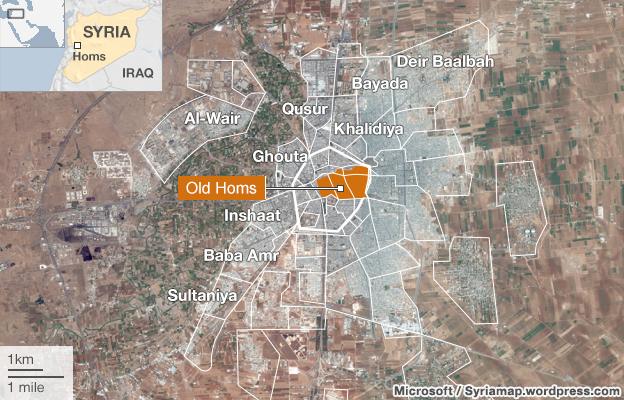Syria conflict: Government troops retake Homs Old City
- Published
Government forces have taken full control of the heart of Homs, as Paul Wood reports
Syrian government forces have retaken control of the Old City of Homs after the evacuation of rebel troops.
State television declared on Thursday that the Old City was "totally clean of armed terrorist groups" but officials later confirmed that the evacuation was not fully over.
Earlier, Homs Governor Talal al-Barazi said more than 1,500 fighters and their relatives had left since Wednesday.
The evacuation marks the end of three years of resistance in Homs.
Syria's third city was once dubbed the "capital of the revolution".
Much of Homs fell to the opposition in 2011, but over the past two years government forces have gradually regained control by subjecting areas once home to tens of thousands to continuous siege and bombardment.
'Secure city'
Government forces took full control of the heart of Homs on Thursday, state media said, after rebels in the Old City boarded buses and were transported to rebel-held territory to the north.
"Old Homs is totally clean of armed terrorist groups," state television said, using the government's term for those seeking to topple President Bashar al-Assad.
However, Syrian officials have since told the BBC that 280 fighters are still to be evacuated from the city, and the process will resume on Friday.
Earlier Mr Barazi and UN officials were also quoted as saying the evacuation was not fully over.
Mr Barazi said Homs would be declared a "secure city" once the UN-supervised evacuation was complete, and that reconstruction would begin immediately.
The army is expected to move in fully on Friday, when the Old City will be swept for explosives.
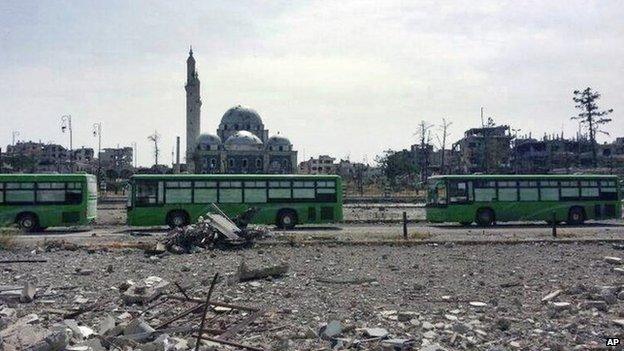
Buses began transporting the rebels to rebel-held territory north of Homs on Wednesday morning
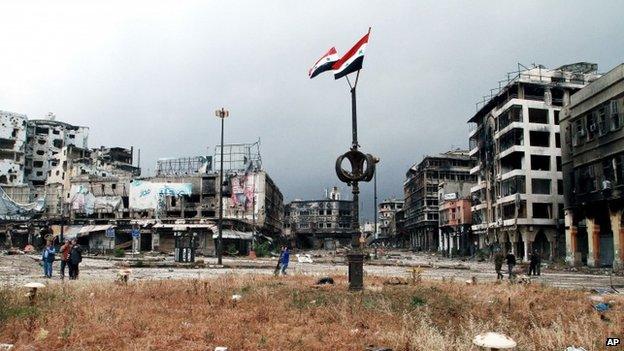
On Thursday afternoon, Syrian state TV declared that the Old City had been "cleansed of terrorists"
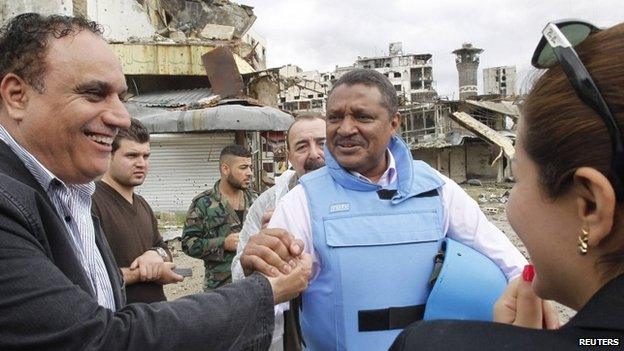
Homs Governor Talal al-Barazi and the UN's resident co-ordinator, Yacoub El Hillo, visited the area
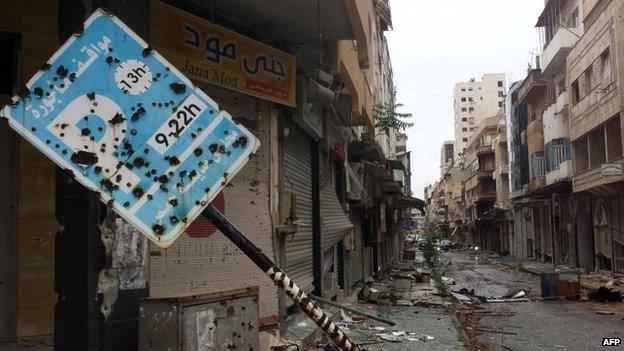
The withdrawal was part of a deal that also saw rebels release dozens of captives and ease two sieges
Earlier, Hezbollah's al-Manar television broadcast footage of a group of rebel fighters walking past security forces personnel and boarding several green buses.
There were similar scenes on Wednesday, when 980 people were evacuated.
The fighters, who were each allowed to leave with a rifle and a bag of belongings, pledged to continue the armed struggle and one day return.
Speaking to the BBC at the end of the first day of the operation, the UN's resident co-ordinator in Syria, Yacoub El Hillo, said he hoped Homs would now be free from violence.
He expressed hope that people would be able to return to their homes, but he cautioned against rushing back because the area was "inundated with unexploded ordnance, including landmines and booby traps".
The Old City was "incredibly and comprehensively destroyed" and was currently "uninhabitable", Mr Hillo said, adding that it would be a "huge task" to rebuild and restore homes and infrastructure.
The withdrawal is part of a deal that will also see rebels release 70 captives in Aleppo and Latakia provinces, and ease sieges of two predominantly Shia towns in the north - Nubul and Zahraa - that are loyal to President Assad.
Mr Barazi told the BBC that those released by the rebels were all Syrians, with the exception of an Iranian woman married to a Syrian man. Efforts to ensure the release of other captives were continuing, he added.
The agreement followed months of negotiations between security officials and rebel representatives, reportedly mediated by the Iranian ambassador to Syria.
There is now only one district in Homs - al-Wair in the north-western outskirts - that is still controlled by the opposition. However, Mr Barazi said he expected a similar evacuation deal to be reached in the coming weeks.
More than 150,000 people are believed to have been killed since the uprising against President Assad began in March 2011. Another nine million have fled their homes.
Despite the conflict, the Syrian government is planning to hold a presidential election on 3 June. The opposition have dismissed the poll, which Mr Assad is widely expected to win, as a farce.
